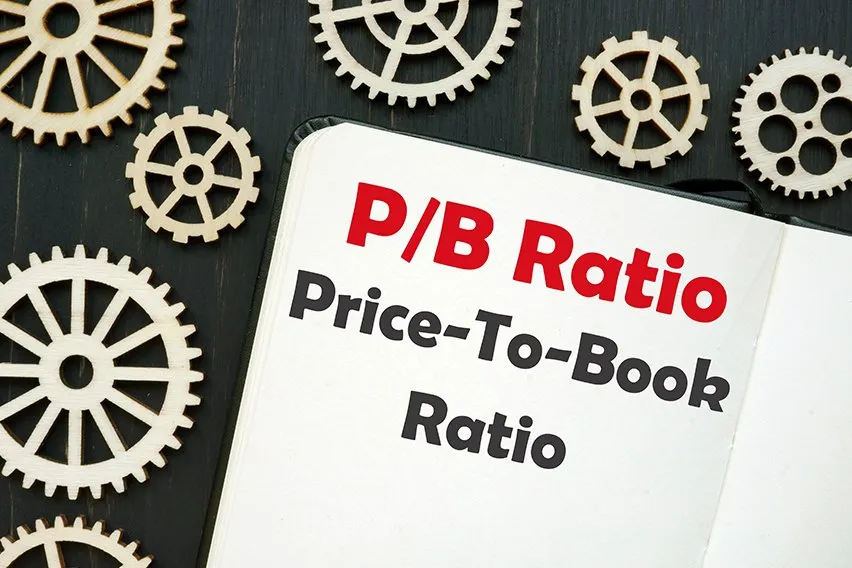What Is Net Book Value? Formula & Importance

Your business is going to have some different assets compared to others. Assets can be wide-ranging and can include things like petty cash, intellectual property or a piece of equipment, to name a few. They can also be tangible assets or intangible assets. Assets add value to your financial measures and generate profits.
So what is net book value and why does it matter? Net book value is one of the most commonly used financial metrics by businesses. This is especially true when trying to add value to your company. And it can be either for your own accounting records or if another company is looking to purchase your business.
Here is everything that you need to know about net book value and why it matters.
Here’s What We’ll Cover:
Why Is Net Book Value Important?
How to Calculate Net Book Value
What Is Net Book Value?
Net book value, or NBV, refers to the historical value of your business assets and how they get recorded. You can calculate net book value by finding the original cost of the asset, as well as depletion, depreciation or amortization of the asset.
It basically shows how much a fixed asset that you have is currently worth. When you purchase a fixed asset, you’re going to record the cost in your balance sheet since you now own it. But what if you want to sell that asset at a later date?
You’re not going to sell it for the same price you purchased it for. This means that you have to reduce the amount the asset is worth by means of depreciation. So, the cost of the asset minus its depreciated value is its net book value.

The term of book value comes from the accounting process of recording the value of your asset at its original cost. And even though the book value of an asset can stay the same over time, the book value of your business can grow. This is due to an accumulation of earnings that get generated through using your asset.
Comparing net book value against the market value of shares can be a good valuation technique. Net book value has two primary uses:
- It can serve as the total value of your assets. And that value would basically be what shareholders would receive if your business was liquidated.
- It can provide insights into whether or not a stock is under or overpriced compared to your market value.
Why Is Net Book Value Important?
Net book value is a common financial metric to use, especially when trying to give value to your business. This can either be for your own accounting records, if you are considering liquidation or if your business might get sold. Market value is another important metric worth understanding.
But, it’s worth noting that net book value and market value aren’t typically going to be equal. Market value is going to depend on external factors such as supply and demand effects.
As well, net book value can get affected by the type of depreciation method your business uses. Since depreciation is always accumulated, it gets put against the asset to determine the net book value. During the first few years of an assets useful life, the net book value is most often going to be lower than the market value.
How to Calculate Net Book Value
Before getting too far into the net book value formula and calculations, let’s talk about accumulated depreciation first. To figure out accumulated depreciation, take the per year depreciation and multiply it by the total number of years.
You can then take that information and add it to the formula for net book value, which would look like this:
Original Asset Cost – Accumulated Depreciation = Net Book Value

Let’s look at a quick example. Imagine that you purchased an asset, let’s say a business vehicle, two years ago. It was purchased for £25,000 and it is depreciating at 25% with the straight-line method of calculation.
This means that the vehicle is depreciating at £6,250 per year (£25,000 x 25%).
£25,000 – (£6,250 x 2) = £12,500
After the second year, your vehicle assets net book value would be £12,500.
Key Takeaways
The net book value refers to the historical value of your assets and how you record them. It’s a financial metric used to help gain insight into how much an asset is currently worth. When you want to sell an asset, you have to take into account its accumulated depreciation.
To calculate net book value, simply take the original cost of the asset and subtract its accumulated depreciation. To find cumulative depreciation, take the per year depreciation and multiply it by the number of years you have owned the asset.
Did you enjoy reading this guide? Head over to our resource hub for more great content!
RELATED ARTICLES

 What is Liquidity Coverage Ratio (LCR)?
What is Liquidity Coverage Ratio (LCR)? 8 Best Accounting Books
8 Best Accounting Books What Are Debtors and Creditors? Understanding Their Differences
What Are Debtors and Creditors? Understanding Their Differences What Is Bookkeeping? Definition, Types & Importance
What Is Bookkeeping? Definition, Types & Importance What Is Capital Employed: Definition, Formula & Calculation
What Is Capital Employed: Definition, Formula & Calculation What is the Price to Book Ratio (P/B Ratio)?
What is the Price to Book Ratio (P/B Ratio)?